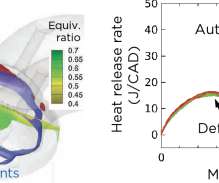WUSTL researchers demonstrate solar-panel-powered microbial electrosynthesis to produce n-butanol from light, CO2 and power
Green Car Congress
NOVEMBER 8, 2021
Researchers at Washington University in St. The resulting biofuel, n -butanol, is a carbon-neutral fuel alternative that can be used in blends with diesel or gasoline. We hope that it can be a steppingstone for future sustainable solar fuel production. —Wei Bai. Ranaivoarisoa, T.O.,














Let's personalize your content